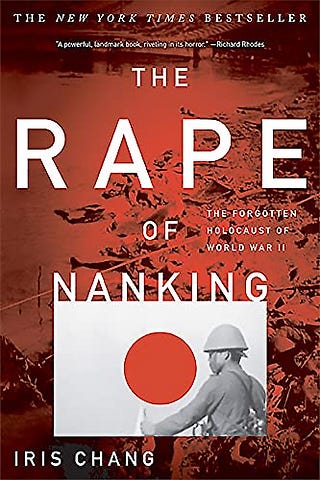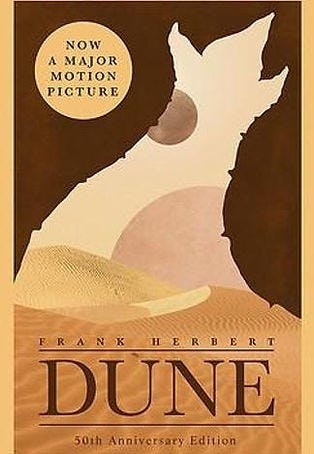My top 5 books of 2021
Originally posted 12/13/21
Sometimes, I read a book so compelling that I can’t stop thinking about it, talking about it, and even writing about it — to prolong the novel past the last page and into a creation of my own. And in 2021, such phenomenal books have carved deep sentimental and intellectual value into my life. Thus, as the year comes to an end, I wanted to reflect on my favorite books (spoiler-free) and share the talent of writers who everyone deserves to experience. If you like my reviews, feel free to add me on Goodreads!
In no particular order, and in genres legitimate or entirely made-up, here are my top 5:
1. Self-Help by Lorrie Moore
Genre:
Realistic Fiction, Nihilistic Feminism
Favorite quote:
“Cold men destroy women...They woo them with something personable that they bring out for show, something annexed to their souls like a fake greenhouse, lead you in, and you think you see life and vitality and sun and greenness, and then when you love them, they lead you out into their real soul, a drafty, cavernous, empty ballroom, inexorably arched and vaulted and mocking you with its echoes—you hear all you have sacrificed, all you have given, landing with a loud clunk.”
Thoughts: Disclaimer — this is not actually a self-help book, but structured in a way that is reminiscent of one, with each chapter its own story. Moore explores the complexity of relationships and the struggles of being a modern woman with clever puns, gorgeous metaphors, and an unflinching tone. She also doesn’t hesitate to command these stories with unique form: “How to Be The Other Woman” is a manual on — you guessed it — how to be the other woman, “How to Talk to Your Mother” is a reverse-chronological collection of diary entries, and almost every story is written in an uncomfortable second-person imperative. I spent every moment marveling at how fun it was to read even when the topics weren’t; rather, her playful style brought a level of intimacy to her anthology that saddened, empowered, and delighted me all at once.
2. Rape of Nanking By Iris Chang
Genre:
Nonfiction, History, Pain
Favorite quote:
“I was suddenly in a panic that this terrifying disrespect for death and dying, this reversion in human social evolution, would be reduced to a footnote of history, treated like a harmless glitch in a computer program that might or might not again cause a problem, unless someone forced the world to remember it.”
Thoughts: For those who are unfamiliar, the Rape of Nanking is one of history’s most gruesome atrocities, yet remains relatively unacknowledged due to overwhelming denial from the Japanese government and lack of coverage in western media. I have so much respect for Chang who is one of the first authors of all time to document both primary evidence and a comprehensive analysis of this historical event in an accessible, packaged manner. Chang weaves in stunning information from diary entries of Japanese soldiers and survivor testimonies into an effortless narrative filled with context, psychology, and historiography. Though justifiably hard to read at times (please read trigger warnings before picking this up), this book sparked unprecedented awareness amongst a western audience. After all, when such a horror hits so close to home — Chang is an Asian-American whose grandparents fled Nanking — her subjective perspective on this objective documentation gifts us with her amazing writing and brings another dimension to the truth.
3. Pachinko by Min Jin Lee
Genre:
Historical Fiction, More Pain
Favorite quote:
“A woman’s lot is to suffer. We must suffer... All her life, Sunja had heard this sentiment from other women, that they must suffer—suffer as a girl, suffer as a wife, suffer as a mother—die suffering. Go-saeng—the word made her sick. What else was there besides this?”
Thoughts: Historical fiction deserves so much appreciation in breathing life into history — especially with lesser known moments of history — and Lee accomplishes just that through the illuminating telling of the Japanese occupation of Korea, World War II, and the spread of western influence through four generations of a Korean family. Lee creates a powerful narrative primarily through the unwavering strength of her female characters — women who have never lived for themselves, but to wholeheartedly support their families. They deal not only with racism and oppression in the macrocosm of Japanese colonization, but also the internal struggles within the microcosm of their families. Written with a calm, no-nonsense voice, Pachinko became one of my favorites this year through its heart-wrenching tales of generational suffering (only amplified by my immigrant-child-guilt).
4. Exhalation by Ted Chiang
(Stories of Your Life & Others is also brilliant)
Genre:
Science Fiction, What Black Mirror Wishes It Was
Favorite quote:
“My message to you is this: Pretend that you have free will. It’s essential that you behave as if your decisions matter, even though you know they don’t. The reality isn’t important; what’s important is your belief, and believing the lie is the only way to avoid a waking coma. Civilization now depends on self-deception. Perhaps it always has.”
Thoughts: 2021 was a year of rediscovering the joy of anthologies — low commitment, short and sweet. And Chiang is quickly becoming one of my favorite writers, a certified genius who uses both popular sci-fi tropes (such as time travel) and long-discarded theories (such as the omphalos hypothesis) to masterfully create intriguing plots. In addition to the namesake story, my favorites in this collection include “The Lifecycle of Software Objects,” an exploration of human rights for artificial intelligence, and “Anxiety is the Dizziness of Freedom,” a tale of existential crisis after technology allows for parallel universes. I appreciate how each chapter is still its own mind-bending, complex plot in so few pages, connected only through Chiang’s fantastic storytelling and a pertinent commentary on the human experience.
5. Dune by Frank Herbert
Genre:
Science Fiction, Fantasy?
Favorite quote:
"Deep in the human unconscious is a pervasive need for a logical universe that makes sense. But the real universe is always one step beyond logic."
Thoughts: I 100% began reading this book in preparation for the movie adaptation by one of my favorite directors. Though it was difficult to sink into at first, it became an absolute page turner around halfway in (or if you have Dune Wiki pulled up while reading). Past that point, I was knee-deep-immersed into Dune’s rich world-building, political games, and iconic sandworms. As a plot-driven novel, Herbert sacrifices some character depth for the fascination and curiosity he inspires with each detail, custom, or technology he introduces to readers, and does so in a way that never feels forced. I also found it impressive that despite Dune being one of the shapers of modern science fiction, it reads like something that could’ve been written today — entirely original despite its expansive influence.
Honorable Mentions via Quotes That Hit Different:
“Women have served all these centuries as looking-glasses possessing the magic and delicious power of reflecting the figure of man at twice its natural size… That is why Napoleon and Mussolini both insist so emphatically upon the inferiority of women, for if they were not inferior, they would cease to enlarge… For if she begins to tell the truth, the figure in the looking-glass shrinks; his fitness for life is diminished.” — A Room of One’s Own, Virginia Woolf
“There she is, a human being, diving into the unknown, and she is wide awake.” — My Year of Rest and Relaxation, Ottessa Moshfegh
“The modern deal offers humans an enormous temptation, coupled with a colossal threat. Omnipotence is in front of us, almost within our reach, but below us yawns the abyss of complete nothingness.” — Homo Deus, Yuval Noah Harari
“There is the humility of being a father to someone so powerful, as if he were only a narrow conduit for another, greater thing. That’s how it feels right now, he thinks, kneeling beside her, rinsing her hair: as though his love for his daughter will outstrip the limits of his body. The walls could fall away, even the whole city, and the brightness of that feeling would not wane.” — All The Light We Cannot See, Anthony Doerr
Thanks for reading!






